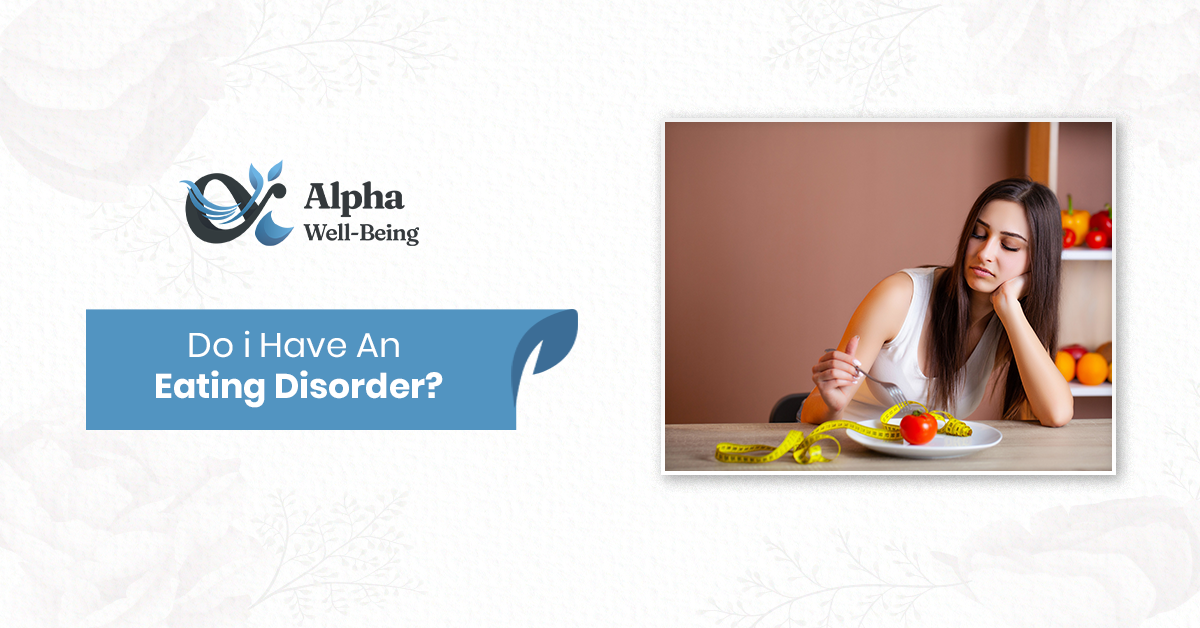Eating is something we all do every day. But sometimes, eating can feel scary or hard to control. You might ask yourself, “Do I have an eating disorder?” This question can feel big and confusing. We will talk about what eating disorders are, how to spot them, and what you can do to stay safe and get help.
What Is an Eating Disorder?
An eating disorder is a serious health issue. It goes beyond just worries about food and weight. This medical condition is serious. It impacts both the body and mental health. Individuals who suffer from eating disorders may:
- Eat too little or too much.
- Feel guilty or scared about eating.
- Think about food all the time.
Eating disorders can happen to anyone, kids, teens, or adults. They are not a choice or a phase. They need care and kindness.
Common Types of Eating Disorders
Anorexia Nervosa
- You eat very little and may skip meals.
- You feel afraid of gaining weight, even if you are thin.
Bulimia Nervosa
- You eat a lot in a short time (binge).
- Then, you try to get rid of food by vomiting, using laxatives, or exercising too much.
Binge Eating Disorder
- You eat a lot and feel you can’t stop.
- You do not try to get rid of food afterward.
Other Specified Feeding or Eating Disorders (OSFED)
- You have harmful eating habits, but don’t fit precisely into the types above.
Signs and Symptoms to Watch For
You might not know if your eating is a problem. Here are some signs to look for:
- Thinking about food all the time
- Feeling sad or worried about eating or your body
- Skipping meals or hiding food
- Sudden weight loss or gain
- Feeling tired, dizzy, or cold
- Trouble sleeping or a low mood
If you notice these signs, ask for help. Talk to someone you trust.
Self-Check: Asking yourself, “Do I have an eating disorder?”
Try these simple questions. Answer honestly:
- Do I skip meals on purpose?
- Do I feel guilty or ashamed after eating?
- Do I worry about my weight every day?
- Do I feel out of control around food?
If you answer “yes” to more than one question, you might have an eating problem. You do not have to face this alone.
Getting Help and Support
Talking to a Friend or Family Member
- Tell someone you trust how you feel.
- Sharing your worries can feel like an enormous weight lifted off your shoulders.
Seeing a Healthcare Provider or Counselor
- A healthcare provider can check your body and health.
- A counselor or therapist can help you understand your thoughts and feelings.
Support Groups
- Groups let you talk with others who face the same struggles.
- Hearing real stories can help you feel less alone.
Extra weight can harm your body and mind. Alpha Wellbeing Care offers weight loss therapy and emotional support. Take the first step toward a healthier you.
How Friends and Family Can Help
Loved ones play a significant role in healing. If someone you care about has an eating disorder, learn “how to support someone with anorexia” or other types. Here are tips:
- Listen without judging. Let them talk and share feelings.
- Offer kind words. Say, “I’m here for you,” not “Just eat.”
- Avoid comments about weight. Focus on feelings, not appearance.
- Encourage professional help. Suggest seeing a healthcare provider or therapist.
Showing love and patience can make a big difference.
Treatment Options: Weight Loss Therapy and Beyond
Many people hear “therapy” and think it is only for losing weight. But real treatment is about health, not numbers on a scale. “Weight loss therapy” in the context of eating disorders is part of a bigger plan:
Nutrition Counseling
- A specialist helps you make a balanced meal plan.
Medical Care
- Healthcare providers check your body for any harm from the disorder.
Talk Therapy
- You work with a therapist on healthy thoughts and habits.
Family-Based Therapy
- Your family joins sessions to learn how to help you.
Each plan is different. The goal is to help you feel strong in both body and mind.
Using Combination Strategies
Sometimes, you may hear about combining help methods. For example, asking “how to support someone with anorexia eating disorder” can guide family members to use both care and therapy. Or thinking, “Do I have an eating disorder?” Weight loss therapy might lead you to ask a healthcare provider about safe plans. These combination ideas mix asking questions with finding a therapy that fits your needs.
Tips for Everyday Self-Care
While you find help, try simple steps each day:
- Keep a journal. Write about how you feel about food and your body.
- Set small goals. Focus on one meal or snack at a time.
- Do gentle movements. A short walk or basic stretches.
- Practice relaxation. Breathe deeply or listen to calm music.
- Stay connected. Call a friend or join an online group.
Small steps add up. Be kind to yourself.
Conclusion
Asking, “Do I have an eating disorder?” can be scary, but it’s also bravery. Eating disorders aren’t your fault. They need care, support, and kindness. You are not alone. Friends, family, and healthcare providers all want to help you get better. Support is nearby for anyone struggling with eating disorders. If you notice signs of trouble in a loved one, help is also available for them. Recovery can happen, and it’s not just a fantasy. Your path to food happiness and balance begins with caring help.
FAQs
Q. What is weight loss therapy?
Weight loss therapy is a plan that helps you eat healthy, move your body safely, and feel good about yourself. It is made just for you.
Q. Where can I learn more about support?
You can look for support groups online or in your town. Talking with people who understand can help you feel stronger.



No comment